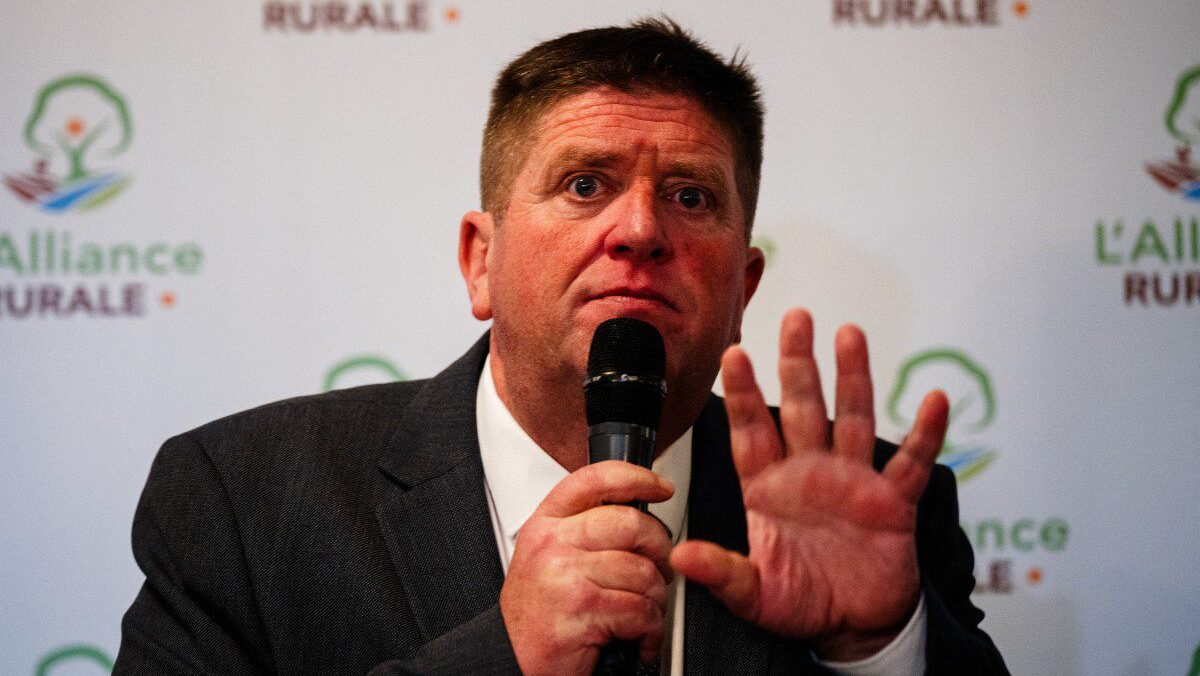
A newcomer in the race for the European elections, a French list designed to defend rural life, has just been launched, headed by Willy Schraen, the head of the French hunters’ federation, under the name ‘Alliance rurale’ (Rural Alliance). Although defending the countryside is traditionally a right-wing issue in French politics, the head of the list denies any conservatism and intends to reconcile rural lifestyles with “modern values.”
The list was officially unveiled on Tuesday, December 5th, with the stated aim of defending a “happy rurality.”
Willy Schraen denies any right-wing positioning. He voted for Emmanuel Macron in the 2022 presidential election. In doing so, he differs from previous rural list initiatives, which in French political history have always been marked on the Right, such as the CNIP (Centre National des Indépendants et Paysans, or National Center for Independent and Farmers, which is politically close to the Rassemblement National and then supported Éric Zemmour in the 2022 election), or the CPNT movement (Chasse, Pêche, Nature et Tradition or Hunting, Fishing, Nature and Tradition), renamed Mouvement de la Ruralité in 2019 and allied with the Les Républicains party.
As he explained to the press, Schraen’s programme can be summed up in one simple phrase: “Leave rural areas alone.” It’s a classic argument against the hold that bureaucracy, administrative standards and power from Paris and Brussels have over the countryside. Schraen has tried to win over a number of well-known personalities to his list, including Michelin-starred chef Pierre Gagnaire and Christiane Lambert, the head of the largest farming union, the FNSEA, but to no avail. Having failed to convince any famous names, Schraen insists that he wants to highlight “people from real life.” He has some interesting people on his list, including Camille Hoteman, a former ‘Queen of Arles’ and as such a leading figure in the promotion of the traditional heritage of Provence, and Louis Picamoles, an international rugby player.
Beyond a stance in favour of the countryside, the political content of the Alliance rurale‘s offer is unclear, to the extent that some accuse Schraen of having been pushed by the government camp to put together his list simply to grab a few precious points from a right-wing target electorate often tempted to vote for the Rassemblement National. The head of the list vigorously denies this interpretation: “We are not at the heart of a ploy to serve Emmanuel Macron or the hidden soldiers of a political party. We are not for sale.”
It is true that the Macronist camp has long been keen to cater to the electorate of hunters and their families, who represent a potential electorate of 4 million votes. Pro-hunting lobbyist Thierry Coste, who is close to Emmanuel Macron, explains to anyone who will listen that the hunters are “covered by the Élysée Palace” and that the list was put together with the backing of the President of the Republic—a suggestion which enraged Emmanuel Macron, who denies any involvement.
Willy Schraen is not addressing hunters alone, but a whole range of people and groups who have become the pariahs of modern society: “I’m a hunter, but there’s fishing and horse-riding, agriculture, livestock farming, French values, winegrowing, bullfighting, the restaurant trade, a whole range of people today who are practically pariahs to the eyes of Europe and of a minority part of French society,” he explained to France Bleu Nord radio.
The fact that all these population groups are endangered by European standards, modernised lifestyles and housing, and changing mentalities, might give a conservative dimension to his political campaign, but Schraen assured Le Figaro in an interview that this is not his intention: “Our campaign consists of preserving rural lifestyles based on modern values.” Although he tries to present a smooth image of his commitment, it will nevertheless be difficult for Schraen to escape the stigmatisation of the dominant political and media system, which abhors and condemns the people he intends to defend. A case in point is former cycling champion Bernard Hinault, who initially signed up to the Alliance rurale list—before dropping out for fear of an avalanche of negative reactions on social media.
The Alliance rurale is aiming for a minimum score of 3%, which would enable it to have its campaign expenses reimbursed, or better still, the 5% threshold for obtaining elected representatives in the European Parliament.
